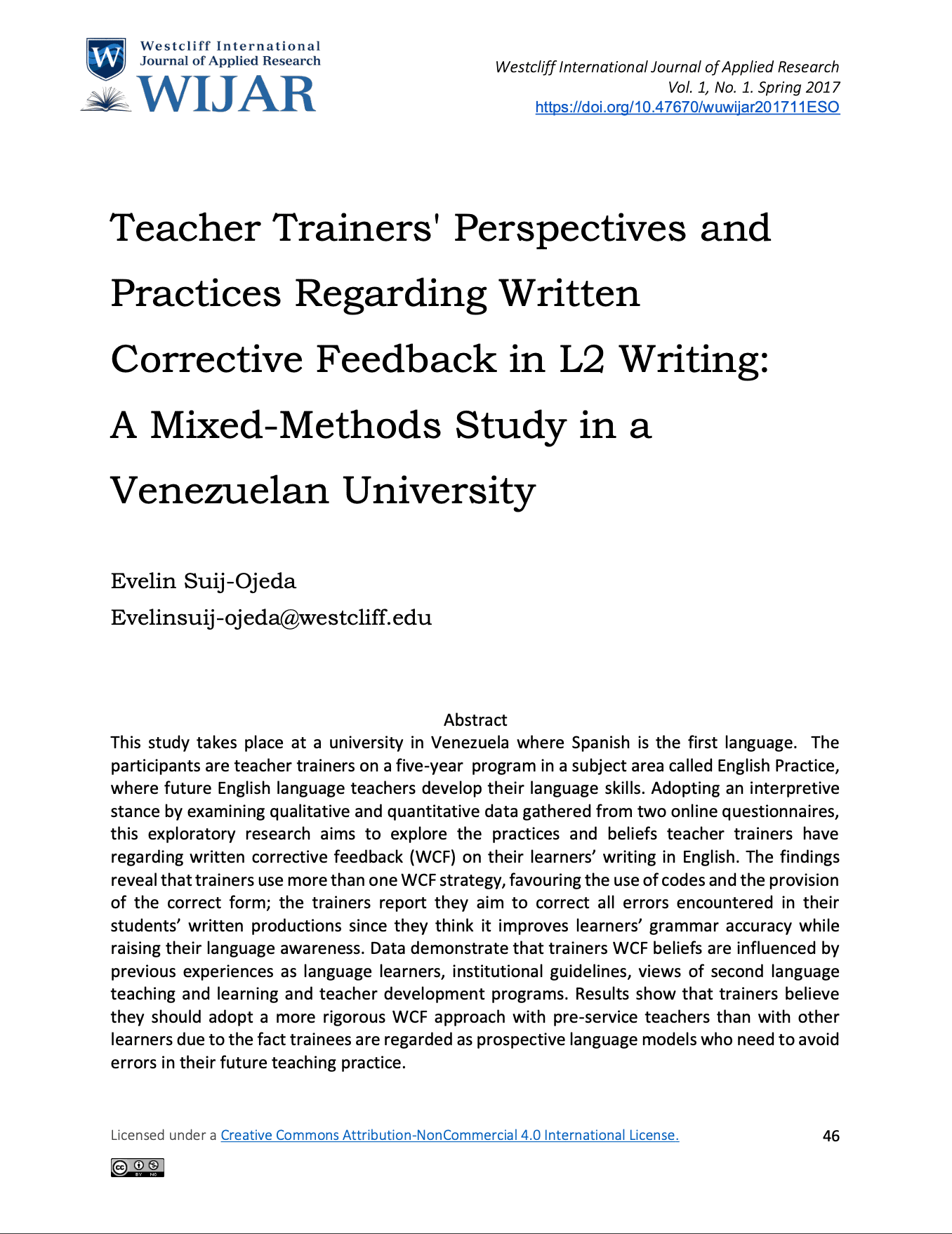Teacher trainers’ perspectives and practices regarding written corrective feedback in L2 writing: A mixed-methods study in a Venezuelan university.

Author: Evelin Suji-Ojeda
Issue: Spring Issue, 2017
Download ArticleAbstract
This study takes place at a university in Venezuela where Spanish is the first language. The participants are teacher trainers on a five-year program in a subject area called English Practice, where future English language teachers develop their language skills. Adopting an interpretive stance by examining qualitative and quantitative data gathered from two online questionnaires, this exploratory research aims to explore the practices and beliefs teacher trainers have regarding written corrective feedback (WCF) on their learners’ writing in English. The findings reveal that trainers use more than one WCF strategy, favouring the use of codes and the provision of the correct form; the trainers report they aim to correct all errors encountered in their students’ written productions since they think it improves learners’ grammar accuracy while raising their language awareness. Data demonstrate that trainers WCF beliefs are influenced by previous experiences as language learners, institutional guidelines, views of second language teaching and learning and teacher development programs. Results show that trainers believe they should adopt a more rigorous WCF approach with pre-service teachers than with other learners due to the fact trainees are regarded as prospective language models who need to avoid errors in their future teaching practice.
